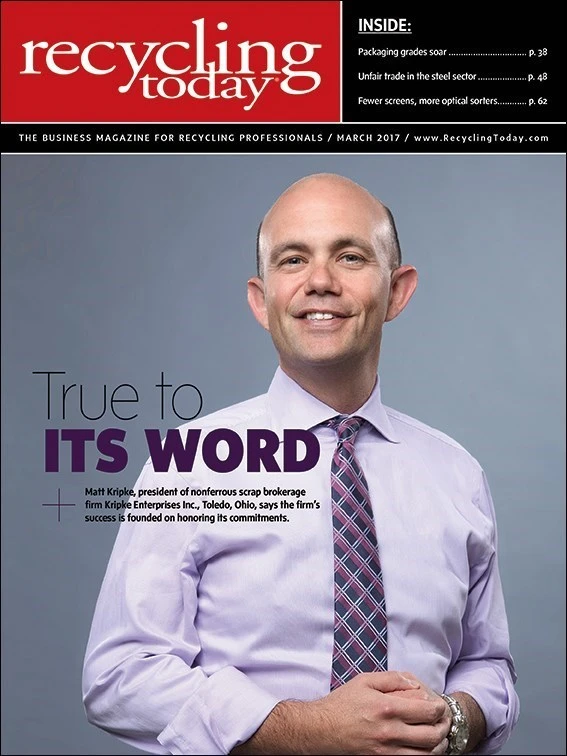US Customs agents seize aluminum shipments

Agents working for the U.S. Customs agency have reportedly seized shipping containers filled with finished or semifinished aluminum valued at up to $25 million at the Port of Long Beach, California. According to an online report by the Wall Street Journal, the aluminum is related to an investigation of the owner of China Zhongwang Holdings Ltd., an aluminum producer in that nation.
In late August 2016, a U.S.-based subsidiary of Zhongwang announced it had agreed to purchase Cleveland-based aluminum producer Aleris Corp. Aleris focuses on rolled aluminum products and operates 14 facilities.
In the fall of 2016, the Wall Street Journal reported that China Zhongwang, through a series of related companies, was storing considerable amounts of finished aluminum, as much as 6 percent of the global supply, at a remote site in Mexico. According to the article, some observers saw this as an effort to avoid U.S. tariffs on aluminum imports from China.
Other media reports have accused companies with ties to Zhongwang of storing aluminum in Vietnam and in New Jersey. The New Jersey allegation caused the U.S. Department of Commerce to open an investigation into whether the company has been repositioning and possibly mislabeling aluminum to avoid tariffs, according to one media report.
According to the January 2017 Wall Street Journal article, the shipping containers in Long Beach were seized from Perfectus Aluminum Inc., which the son of Zhongwang Holdings CEO Liu Zhongtian founded and is operated by a friend of his. Perfectus Aluminum has objected to the earlier detention of the containers and is seeking legal relief.
US files WTO complaint on China’s subsidies to aluminum producers
U.S. Trade Representative (USTR) Michael Froman has announced that the United States has launched a trade enforcement complaint against the People’s Republic of China at the World Trade Organization (WTO) concerning China’s subsidies to certain producers of primary aluminum.
In a news release, the USTR says the action follows efforts to persuade China to take steps to address the excess capacity situation in its aluminum sector. The complaint begins a process to address U.S. concerns that China’s subsidies appear to have caused serious prejudice under WTO rules to U.S. interests by artificially expanding Chinese capacity, production and market share and causing a significant lowering in the global price for primary aluminum.
“China’s subsidies have done enormous damage to the U.S. and global aluminum industries,” says Michael Bless, president and CEO of Century Aluminum. “Following a series of closures due to Chinese overcapacity, Century operates 3 of only 5 remaining smelters in the United States. USTR’s decision to challenge these unreasonable, illegal and harmful subsidies is an important step towards a long-term solution for the global aluminum industry, and we are thankful for the [Obama] administration’s efforts on the industry’s behalf. We look forward to continuing this work in the coming months and years.”
USTR says chronic overcapacity in China resulting from its failure to transition to a market economy has been identified as a problem in a number of sectors. In this case, the USTR says, “We are seeking to address one core aspect of this problem by challenging the use of subsidies that have generated overcapacity. This is one facet of state-sponsored industrial policy that has led to the overcapacity that has in turn resulted in price and other harmful effects manifested in the United States and other countries on businesses and working people in this important economic sector.”
Excess production in China’s aluminum sector contributes to lower global primary aluminum prices, USTR says. From 2007 to 2015, Chinese primary aluminum production increased by 154 percent and capacity increased by 243 percent, while global prices fell by 46 percent. Also during the same period, U.S. primary aluminum production decreased by 37 percent and capacity decreased by 46 percent, even though U.S. consumption increased. The number of U.S. aluminum smelters fell from 14 in 2011 to five in 2016.

Explore the March 2017 Issue
Check out more from this issue and find your next story to read.
Latest from Recycling Today
- BMW Group, Encory launch 'direct recycling’ of batteries
- Loom Carbon, RTI International partner to scale textile recycling technology
- Goodwill Industries of West Michigan, American Glass Mosaics partner to divert glass from landfill
- CARI forms federal advocacy partnership
- Monthly packaging papers shipments down in November
- STEEL Act aims to enhance trade enforcement to prevent dumping of steel in the US
- San Francisco schools introduce compostable lunch trays
- Aduro graduates from Shell GameChanger program





